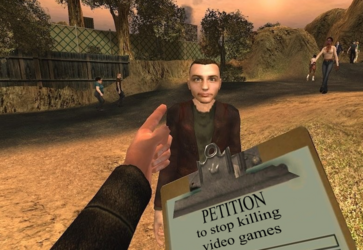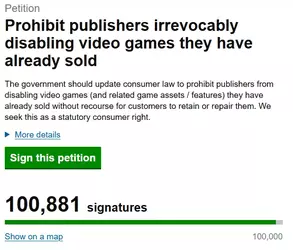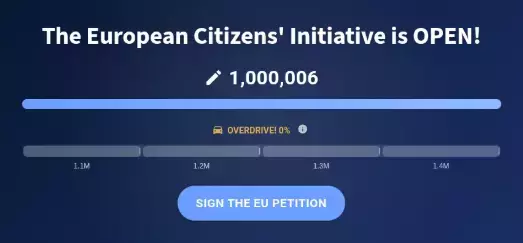The Tall Man
kiwifarms.net
- Joined
- Aug 4, 2022
Ross Scott, YouTuber known for Freeman's Mind and his Game Dungeon series, is on a mission to stop the deliberate destruction of video games.
To achieve this, he has launched an EU Citizens' Initiative and has one year to collect 1 million signatures from EU citizens.
If you are an EU citizen, simply visit https://www.stopkillinggames.com/eci click on your countries flag and follow the instructions.
What the initiative would do:

After some confusion caused by twitch streamer Jason Thor Hall (who has his own thread) and his acolytes, Ross decided to release a large FAQ video to address many of the concerns and misunderstandings.
There is more than one operation going on with StopKillingGames; it's a multipronged approach.
If you care about the preservation of video games, especially if you own "The Crew," then go check it out.
[Update]
The UK government petition to stop publishers destroying games is now open! Here's a video with more details on it. Sign the petition if you're a UK citizen or resident!
https://petition.parliament.uk/petitions/702074
[Update]
Thanks to everyone getting together in their hate for Jason Hall

The goal for the UK petition has been reached. However, if you are a UK citizen or resident who hasn’t signed it yet, please do so.
Some signatures may be discarded if they are found to be invalid, so having a strong safety margin is important.
[Update]

With the power of hate Gamers have risen up and reached the One Million goal!
If you are an EU citizen who hasn’t signed it yet, please do sign the EU petition.
Some signatures may be discarded if they are found to be invalid, so having a strong safety margin is important.
To achieve this, he has launched an EU Citizens' Initiative and has one year to collect 1 million signatures from EU citizens.
If you are an EU citizen, simply visit https://www.stopkillinggames.com/eci click on your countries flag and follow the instructions.
What the initiative would do:
- Require video games sold to customers to be in a reasonably working state at the time of shutdown / end of support
- Prohibit any requirements for video games sold to customers to connect to the publisher or affiliated parties after support ends
- Require the above also apply to video games that sell game assets or features (microtransactions) to customers
- Require publishers to give up intellectual property rights
- Require publishers to give up source code
- Require endless support
- Require publishers to host servers
- Require publishers to assume liability for customer actions
- Interfere with business practices in any way while a game is still being supported

After some confusion caused by twitch streamer Jason Thor Hall (who has his own thread) and his acolytes, Ross decided to release a large FAQ video to address many of the concerns and misunderstandings.
There is more than one operation going on with StopKillingGames; it's a multipronged approach.
If you care about the preservation of video games, especially if you own "The Crew," then go check it out.
[Update]
The UK government petition to stop publishers destroying games is now open! Here's a video with more details on it. Sign the petition if you're a UK citizen or resident!
https://petition.parliament.uk/petitions/702074
[Update]
Thanks to everyone getting together in their hate for Jason Hall

The goal for the UK petition has been reached. However, if you are a UK citizen or resident who hasn’t signed it yet, please do so.
Some signatures may be discarded if they are found to be invalid, so having a strong safety margin is important.
[Update]

With the power of hate Gamers have risen up and reached the One Million goal!
If you are an EU citizen who hasn’t signed it yet, please do sign the EU petition.
Some signatures may be discarded if they are found to be invalid, so having a strong safety margin is important.
Last edited:
